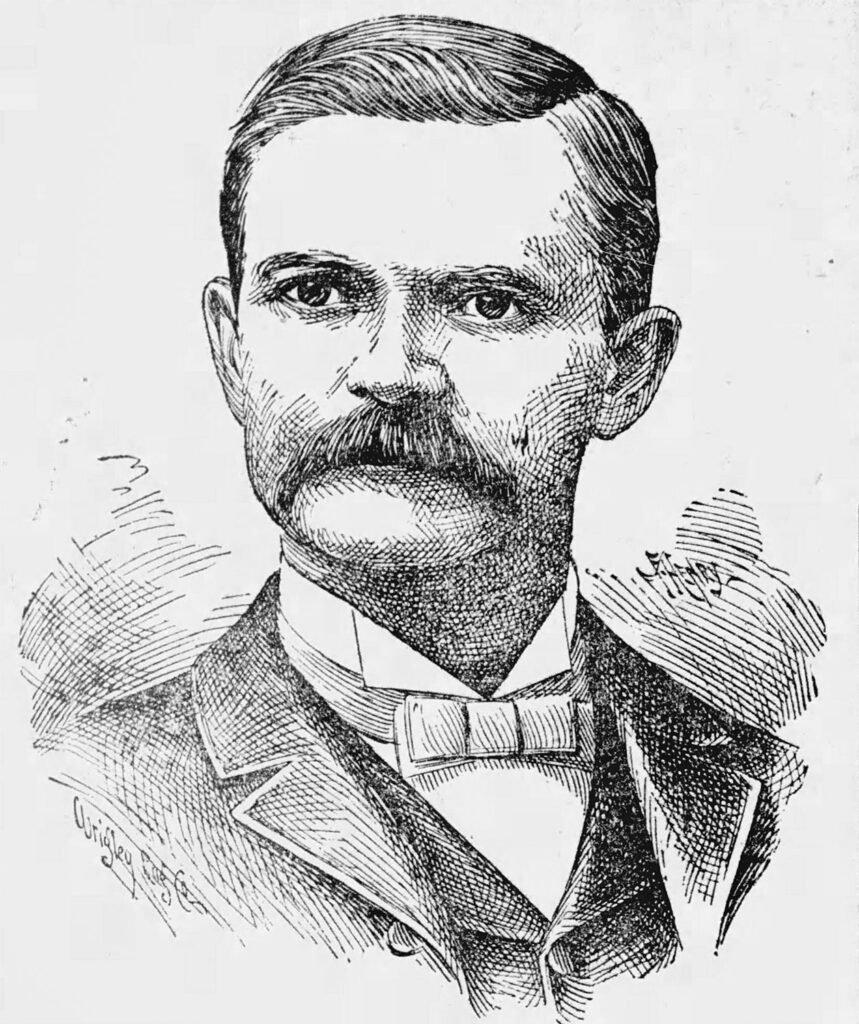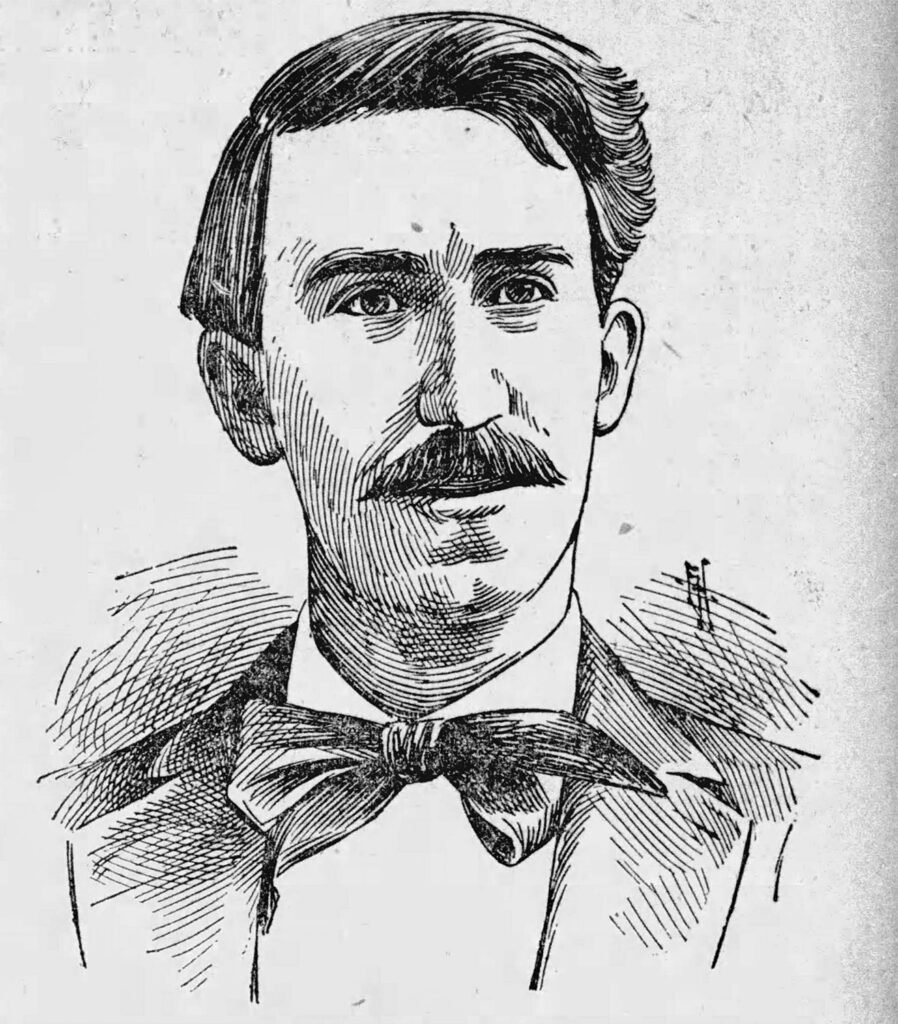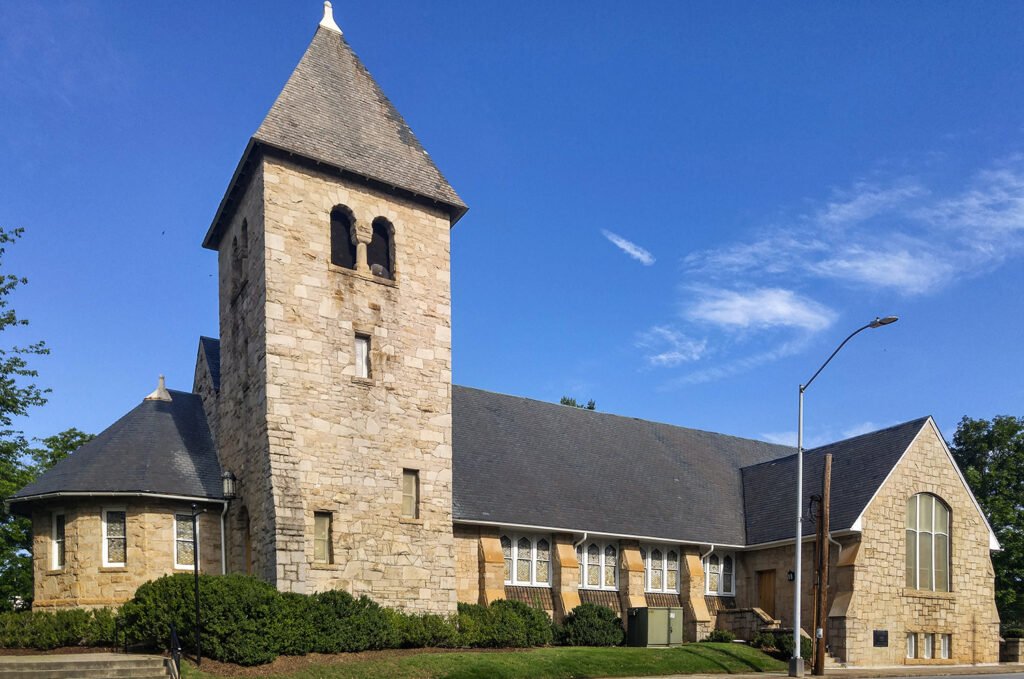The Background
Sam Jones was a Methodist minister from the backwoods of northwest Georgia who traversed the United States in the late 19th and early 20th centuries, spreading a populist gospel of hellfire and hatred that Americans still lap up like manna.
Notorious for his caustic and crude demeanor, Jones was a reformed alcoholic who railed against gambling, dancing, theater-going, Europeans, Chinese immigrants, and women doing damn near anything besides dutifully serving their husbands (“You old woman at the club meeting while your husband is choking down cold meat at home—there’s a special punishment for you”, he told a crowd at Atlanta’s Trinity Methodist Church.1). Naturally, Jones was a staunch Prohibitionist.

Jones was popular in Atlanta — among a certain element, anyway — and in 1896, he became a regular contributor to The Atlanta Journal, writing weekly diatribes about society, politics, and whatever else drew his ire, composed in an exaggerated folksy style that included frequent reference to the devil and Jones’ cadre of cronies, among them a fellow Methodist minister named George Stuart — always referred to as “Brother Stuart”.

In early 1897, Jones and Brother Stuart held a nearly month-long revival in Boston,4 5 6 followed by a week-long engagement in Nashville,7 raking in thousands of souls and, of course, plenty of tithes and offerings.
Jones remarked that Boston was “within a half-mile of hell”, leading the New York Sun to quip: “So far away as that?”8 He also publicly rebuked Boston’s wicked evil nightlife: “Some of you fellows who go to bed at 9 o’clock don’t know what is going on here in Boston. The devil doesn’t start his procession until 11 o’clock.”9
Meanwhile, the January 27, 1897, issue of the Journal published a gushing article in which the reporter interviewed Jones while he was conducting a “midnight tour” of Boston’s Chinatown with his entourage of men, including Brother Stuart. The tour concluded with a visit to an “opium joint”, although the reporter was careful to note that Jones and his men were smoking “…not opium, just plain every-day Havana-de-Kentuckio tobacco.”10
During his February 1897 revival in Nashville, Jones wrote to the Journal about the gambling problem in that most sinful city:
“I said, in a sermon a day or two ago that if ten greasy old n*****s were to congregate in a back alley in Nashville and play cards for an old tin syrup pitcher, the police would run them in jail for gambling, and yet, the deacons and stewards and elders with their invited guests play cards for a cut glass vase in their elegant parlors, with the whole list of names published in the papers the next morning, telling who won the vase, and yet, nothing is done.”11
Jones was scheduled for a 2-week stint in Atlanta in March 1897,12 and on February 19, 1897, the Journal published a letter from G.L. Norrman sharing his thoughts on the matter. Witty and urbane, Norrman was the antithesis of Jones: a European immigrant, patron of the theater, and an avowed anti-Prohibitionist.
In this letter are Norrman’s earliest published remarks mocking the business of 19th-century Christianity — a subject he would expound upon in his 1898 pamphlet, Architecture As Illustrative of Religious Belief, in which he revealed himself to be a worshipper of the gods of Old Norse mythology.
Here Norrman lampooned Jones’ characteristic writing style, throwing in several hick phrases and even mentioning Brother Stuart, although he misspelled his name as “Stewart”. There’s no question that G.L. Norrman could be harsh and condescending in his criticisms, but dear God, in a circus full of such absurdity, someone has to be.
Norrman’s assessment of Sam Jones didn’t seem to hurt his reputation too much, even among Methodists — a few months later, he began designing the new Methodist church in nearby Decatur, Georgia.13

Norrman’s remarks:
To the Editor of the Journal:
‘The revival of Mr. Sam Jones is billed to be here on March 7th, and will be the greatest attraction of the season. He promises that “it shall be as full of spirit and fight as all his meetings have been.”
‘He says he “will run the black flag against the flesh, the world and the devil.” But the main point of the performance will be to “give the devil a black eye.” And if the devil “winks the other eye,” he will blacken that also.
‘Mr. Jones thinks it would be well for the good people to invite the Lord to help him with his revival, but if the Lord should not accept the invitation, he will beat the devil by himself, with Brother Stewart to help him, and I infer from Mr. Jones’ letter that the devil has a poor show when Brother Stewart is around.
‘According to Mr. Jones’ philosophy, there is a great deal of business and pleasure carried on successfully to which the Lord is very much opposed; from which fact it would seem that the Lord does not cut much of a figure in the world anyway.
‘Mr. Jones is working away very hard at present on the devil’s tail, and he says he is getting along tiptop, only he is afraid he will not finish the job before he has to come here to blacken the devil’s eyes.
‘By the time Mr. Jones gets through with blackening the devil’s eyes and cutting of his tail, the poor devil will be pretty badly used up, so that any ordinary minister can handle him afterwards.
‘The posters necessary to illustrate the show have not been put up yet, except Mr. Jones’ own picture, but no time or attention has been spared to get up the paraphernalia and accessories necessary for a first class revival.
Both the animals and people connected with the show are in good trim and in ecstacies over the prospect of the performance. The “Yaller dog” is wagging his tail, and the “Flop-eared hound” is barking with joy.
‘The “Dude” is happy and is strutting about with the air of a peacock, and the “Dudine” is chipper as a cricket. The “Tough barroom bum” got on a spree at the last revival and has not sobered up yet, but his good and dutiful wife is bathing his head, so it is hoped he will be in proper trim by next month.
‘The tough “Bum preacher” is in good condition. Both the “Soulsaving business” and the horse-swapping business have been profitable, so his folks are all having a high old time.
‘Prof. Excell has a new band wagon and his two lady assistants are too lovely for anything, and are tuning up like nightingales. In fact nothing has been spared to make the revival a success, so I feel justified in vouching for Mr. Jones’ promise to give sin and sinners an interesting time.’
G.L. NORRMAN14
References
- “In Old Time Form”. The Atlanta Constitution, February 10, 1896, p. 7. ↩︎
- “Rev. Sam Jones Begins His Great Revival Tomorrow Afternoon.” The Atlanta Journal, March 6, 1897, p. 9. ↩︎
- ibid. ↩︎
- “Boston Aroused by Rev. Sam Jones”. The Atlanta Journal, January 8, 1897, p. 2. ↩︎
- “Rev. Sam P. Jones Startles Boston”. The Atlanta Journal, January 13, 1897, p. 2. ↩︎
- “Sam P. Jones in Boston.” The Atlanta Journal, January 23, 1897, p. 11. ↩︎
- “Rev. Sam Jones Returns”. The Atlanta Journal, February 3, 1897, p. 6. ↩︎
- “So Far Away”. The Atlanta Journal, January 8, 1897, p. 10. ↩︎
- “Rev. Sam P. Jones Startles Boston”. The Atlanta Journal, January 13, 1897, p. 2. ↩︎
- “Sam Jones Visits the Boston Slums.” The Atlanta Journal, January 27, 1897, p. 10. ↩︎
- “Nashville a Gambling City; So Says Evangelist Sam Jones”. The Atlanta Journal, February 13, 1897, p. 12. ↩︎
- “Sam Jones to Shake ‘Em Up Again”. The Atlanta Journal, January 18. 1897, p. 9. ↩︎
- “Decatur’s Memorial Methodist Church”. The Atlanta Journal, June 19, 1897, p. 16. ↩︎
- “Mr. Norrman Takes a Shy At Sam Jones”. The Atlanta Journal, February 19, 1897, p. 12. ↩︎